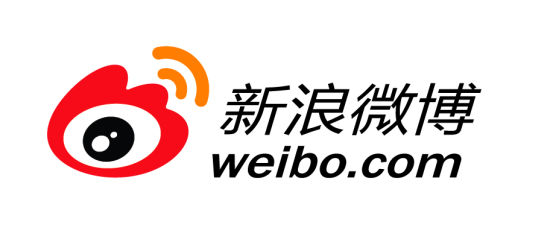 I’ll close out the week with a couple of Internet items, starting with a tie-up between home electronics retailer GOME (HKEx: 493) and e-commerce specialist Dangdang (NYSE: DANG), both top firms in their spaces, that has the online world buzzing. The other deal involving a small European acquisition by Internet leader Tencent (HKEx: 700) also looks interesting, mostly because it represents one of the company’s first steps into more developed western markets. Let’s start with the GOME-Dangdang deal, which is still unconfirmed but presumably would see the former move most of its online operations onto the latter’s platform. (Chinese article) This kind of tie-up could be the wave of the future, allowing traditional retailers like GOME to focus on their core real-world shops while letting e-commerce specialists like Dangdang handle their online business. We saw a similar tie-up a couple of weeks ago at Dangdang rival 360Buy, which sold a limited number of cars online in a highly successful tie-up with Mercedes Benz. These kinds of tie-ups could work to everyone’s advantage by helping companies focus on their core business while outsourcing related ones to partners, lowering costs and perhaps cooling down an overheated e-commerce market racked by rampant competition and soaring costs. These kinds of tie-ups will play to the advantage of big players like Dangdang, 360Buy and Alibaba’s Tianmao, formerly called Taobao Mall, forcing many smaller players out of business. Moving on to Tencent, media are reporting the company has acquired ZAM Network, a European site specializing in news and online community for gamers. (English article) The fact that no price was given tells me this deal was relatively small, probably less than $20 million. Nevertheless, it still looks interesting as cash-rich Tencent looks to leverage its expertise as a gaming and community development expert into a western market, following its recent string of similar small acquisitions mostly in developing markets. I like Tencent’s overseas acquisitions approach, as it focuses mostly on smaller targets in areas related to its core strengths as an operator of Internet communities. I get the sense that Tencent is still trying to figure out how to become more active in helping its acquisitions to grow and integrate them into its own operations, which is always a challenge but can offer big rewards if done properly. This latest buy could signal a more aggressive advance by the company into more lucrative but also more competitive western markets, with an eventual aim for tying these offshore assets together more closely with the parent company to create a global network of online community specialists.
I’ll close out the week with a couple of Internet items, starting with a tie-up between home electronics retailer GOME (HKEx: 493) and e-commerce specialist Dangdang (NYSE: DANG), both top firms in their spaces, that has the online world buzzing. The other deal involving a small European acquisition by Internet leader Tencent (HKEx: 700) also looks interesting, mostly because it represents one of the company’s first steps into more developed western markets. Let’s start with the GOME-Dangdang deal, which is still unconfirmed but presumably would see the former move most of its online operations onto the latter’s platform. (Chinese article) This kind of tie-up could be the wave of the future, allowing traditional retailers like GOME to focus on their core real-world shops while letting e-commerce specialists like Dangdang handle their online business. We saw a similar tie-up a couple of weeks ago at Dangdang rival 360Buy, which sold a limited number of cars online in a highly successful tie-up with Mercedes Benz. These kinds of tie-ups could work to everyone’s advantage by helping companies focus on their core business while outsourcing related ones to partners, lowering costs and perhaps cooling down an overheated e-commerce market racked by rampant competition and soaring costs. These kinds of tie-ups will play to the advantage of big players like Dangdang, 360Buy and Alibaba’s Tianmao, formerly called Taobao Mall, forcing many smaller players out of business. Moving on to Tencent, media are reporting the company has acquired ZAM Network, a European site specializing in news and online community for gamers. (English article) The fact that no price was given tells me this deal was relatively small, probably less than $20 million. Nevertheless, it still looks interesting as cash-rich Tencent looks to leverage its expertise as a gaming and community development expert into a western market, following its recent string of similar small acquisitions mostly in developing markets. I like Tencent’s overseas acquisitions approach, as it focuses mostly on smaller targets in areas related to its core strengths as an operator of Internet communities. I get the sense that Tencent is still trying to figure out how to become more active in helping its acquisitions to grow and integrate them into its own operations, which is always a challenge but can offer big rewards if done properly. This latest buy could signal a more aggressive advance by the company into more lucrative but also more competitive western markets, with an eventual aim for tying these offshore assets together more closely with the parent company to create a global network of online community specialists.
Bottom line: A new alliance between electronics retailer GOME and Dangdang could mark the start of a wave of similar tie-ups, helping to lower costs and cool down the overheated e-commerce space.
Related postings 相关文章:
◙ Group Buy Clean-Up Grows, E-Commerce Next 团购行业洗牌加剧,下一个是电子商务
◙ Dangdang Loss Balloons In E-Commerce Wars 当当网在电子商务大战中亏损严重
◙ E-Commerce: 360Buy Explores IM, Wal-Mart Gets Serious 京东商城内测即时通讯工具,沃尔玛有意控股一号店

 Sina (Nasdaq: SINA), China’s leading web portal whose shares have been battered lately, has received a rare piece of good news in the form of a potential major new investment for its controversial Twitter-like Weibo service from heavy-hitter Digital Sky Technologies (DST). (
Sina (Nasdaq: SINA), China’s leading web portal whose shares have been battered lately, has received a rare piece of good news in the form of a potential major new investment for its controversial Twitter-like Weibo service from heavy-hitter Digital Sky Technologies (DST). ( Malaise continues to inflict the overheated Chinese Internet realm, with veteran new media firm Kongzhong (Nasdaq: KONG) falling into the loss column and newly listed children’s website Taomee (Nasdaq: TAOM) reporting a shrinking profit, as both fell victim to stiff competition. I won’t go too much into the reports of these two companies, but Kongzhong reported a $17 million loss, compared with a profit a year earlier, as its Internet games business saw an especially sharp drop. (
Malaise continues to inflict the overheated Chinese Internet realm, with veteran new media firm Kongzhong (Nasdaq: KONG) falling into the loss column and newly listed children’s website Taomee (Nasdaq: TAOM) reporting a shrinking profit, as both fell victim to stiff competition. I won’t go too much into the reports of these two companies, but Kongzhong reported a $17 million loss, compared with a profit a year earlier, as its Internet games business saw an especially sharp drop. ( There’s been lots of noise in the electronic payments space lately, as China gets ready to issue its second round of licenses to domestic players (
There’s been lots of noise in the electronic payments space lately, as China gets ready to issue its second round of licenses to domestic players ( Perhaps I’m becoming a bit biased due to my belief that China is in the midst of an Internet bubble, but the latest word from online retailing giant 360Buy that it is cutting off Alibaba’s Alipay online payments service to me looks like the latest sign of a swollen China Internet sector under growing duress. As many will recall, 360Buy made headlines earlier this year when it raised a whopping $1.5 billion in new funding, a record for a private Chinese Internet company and just one of a large number of fundings of $100 million or more as both domestic and foreign investors piled onto the China Internet bandwagon. (
Perhaps I’m becoming a bit biased due to my belief that China is in the midst of an Internet bubble, but the latest word from online retailing giant 360Buy that it is cutting off Alibaba’s Alipay online payments service to me looks like the latest sign of a swollen China Internet sector under growing duress. As many will recall, 360Buy made headlines earlier this year when it raised a whopping $1.5 billion in new funding, a record for a private Chinese Internet company and just one of a large number of fundings of $100 million or more as both domestic and foreign investors piled onto the China Internet bandwagon. ( Just a day after Tudou’s (Nasdaq: TUDO) disappointing IPO that saw its shares drop 12 percent on their trading debut (
Just a day after Tudou’s (Nasdaq: TUDO) disappointing IPO that saw its shares drop 12 percent on their trading debut ( fast growing space. Yihaodian’s numbers do look impressive: after just three years in business, the company expects to notch 800 million yuan in revenue this year and keep its top line growing at 100 percent or more over the next two years. I expect that Wal-Mart is positioning itself for a potential buy-out if Yihaodian continues to perform well. Given Wal-Mart’s already sizable presence in China, the connections and expertise it has to offer could provide a potent combination for Yihaodian, creating a major new player on the China e-commerce scene.
fast growing space. Yihaodian’s numbers do look impressive: after just three years in business, the company expects to notch 800 million yuan in revenue this year and keep its top line growing at 100 percent or more over the next two years. I expect that Wal-Mart is positioning itself for a potential buy-out if Yihaodian continues to perform well. Given Wal-Mart’s already sizable presence in China, the connections and expertise it has to offer could provide a potent combination for Yihaodian, creating a major new player on the China e-commerce scene.